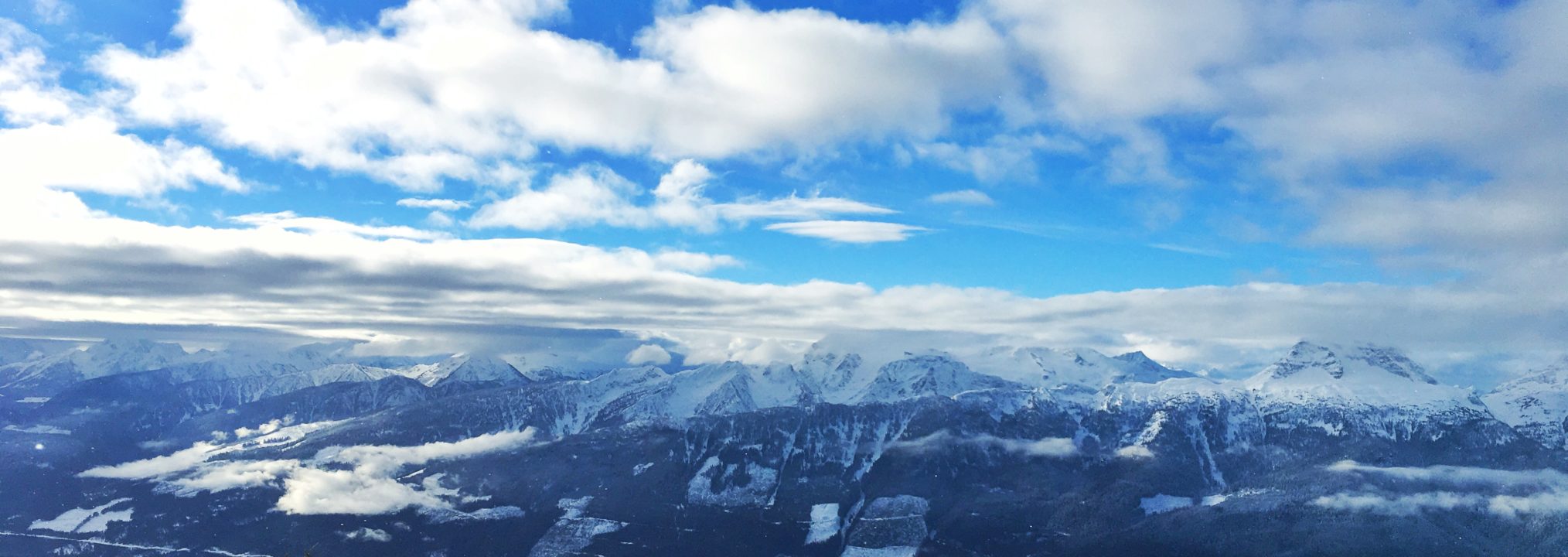Covid – Winter 21/22

November 30, 2021
First a reminder – if you want help planning a trip or just want thoughts on areas/resorts you are thinking about for this winter then get in touch with us! hello@conskierge.ski
The weekend of March 14/15, 2020 will forever regrettably be a memorable one in the ski industry. Going into that weekend Vail Resorts announced they were suspending operations at all their ski areas as a result of Covid-19. (On March 17th they decided to close all their resorts for the ski season.) The entire industry followed and by Monday, March 16th, lift served North American skiing was done. Ever the skiing optimist, we at conSKIerge assumed that certainly by the start of the 20/21 season, Covid-19 would be in our rear view mirror. As we all know, that assumption was brutally wrong.
And here we are…wondering what havoc Covid-19 might wreak on the 21/22 season. Any hopes of it being a non-event for the ski industry this season are long gone. In fact, certain key states reliant on the industry are currently experiencing Covid-19 surges. Currently, Colorado is nearing its prior peak in cases and Vermont is experiencing all time highs in cases. Every ski area and ski town is actively plotting their strategies for the winter to combat the spread and ease concerns of potential customers.
But before we dwell on the Covid-19 negatives for this winter, Covid-19 has had a few positive impacts on the industry. In some respects, Covid -19 has brought the ski industry into the 21st century. It will be rare to wait in line again to buy a lift ticket. In fact, according to the National Ski Areas Association, almost 50% of areas report that lift tickets will ONLY be available online. Online ordering (via QR codes) for food is going to be maintained by many areas and outdoor food kiosks are most likely here to stay. And the real shocker that we love – some areas are sticking with limiting the number of skiers. As an example of this type of approach see Arapahoe Basin’s Ticket Policy.
Further, there are some encouraging general trends. Travel restrictions have loosened, with perhaps the most important change being that fully vaccinated and tested (for Covid, not ability) skiers can cross the US/Canadian border. In the East this will allow Canadians to once again access some favorite haunts such as Jay Peak and Smugglers’ Notch in Vermont. And in the West the reverse flow of US skiers into Canada will allow heli operations in British Columbia to open up again and provide a boon to resorts popular to US skiers like Whistler and Revelstoke. Even the state with perhaps the most restrictive Covid regulations last year (yes, that’s you Vermont), is taking a more relaxed approach heading into this winter despite its recent uptick in Covid-10 cases. See…Vermont Covid-19/Winter21/22
Early signs for this season indicate the industry’s careful approach will continue to dominate, but with most restrictions mirroring what is happening in society at large – masking indoors and, most likely, enclosed lifts, but relaxed restrictions outdoors. It appears that most resorts will go back to fully loaded chairlifts that even strangers can share and will make no attempt to enforce spacing in lines. But remember, ski areas do not exist in a vacuum, so each area will be subject to the state, county and town rules, which will no doubt be a moving target throughout the upcoming winter season. See the Ski Utah website for a list of regulations at each Utah resort, which seem to be representative of the industry’s approach to the year.
The new dynamic for the industry – vaccine status. In a major effort to reassure wary skiers, many areas have announced that all employees are required to be vaccinated. Some resorts (Aspen Skiing Company and Vail Resorts being leading examples) are requiring diners and lodging guests to be fully vaccinated at some facilities. We do not know of any US resorts that are requiring skiers and boarders to be vaccinated to ski there. However, there is a developing trend north of the border. Mount Tremblant has announced that proof of vaccination is required to access their ski lifts. And Resorts of the Canadian Rockies, which owns Kicking Horse, Fernie, Nakiska and Kimberly in British Columbia, has announced that skiers will need to be fully vaccinated. It will be interesting to see if other resorts follow suit. See RCR Covid-19 Policies
Bottom line – last winter proved skiing can take place despite Covid-19, and it appears that this winter will be less affected by the pandemic with some positive changes to remain for years to come. But most resort websites still prominently display their Covid-19 policies even before telling you about the foot of new. Check the websites before you go.
Be Well; Ski Well

